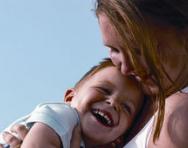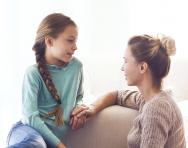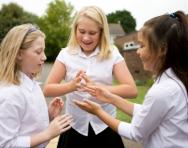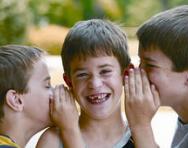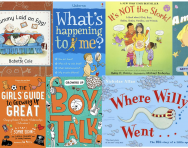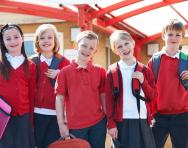Sex and relationships education: what your child learns
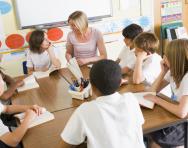
Sex and relationships education (SRE) might be a difficult subject to handle, but it’s an essential area of learning for your child.
‘Primary school children need information about sex and relationships in a timely fashion, which means, for example, that they should learn about puberty before they experience it,’ says Lucy Emmerson, director of the Sex Education Forum.
So what can you expect your child to learn and when?
Relationships education in primary schools
From September 2020, relationships education (but not sex education) is mandatory in primary schools.
There are five compulsory areas of learning:
- Families and people who care for me
- Caring friendships
- Respectful relationships
- Online relationships
- Being safe
To reflect modern society, children will be taught about such things as civil partnerships as an alternative to marriage, preparing for the online world, and unhealthy relationships, including violence, abuse and bullying.
Teachers should be aware that children will come from a variety of different family backgrounds, and should take this into account when preparing lessons. They must also ensure everything they teach is done in an age-appropriate way, taking into account the differences in age, understanding and maturity in their class.
For example, in the Caring friendships area of learning, a Reception class might talk about how friends make us feel; a Year 3 class might discuss the characteristics of friendship (loyalty, kindness, shared interests etc) and how to deal with friendship problems; a Year 6 class might talk about who to trust and not trust, and what to do if a friendship is making them uncomfortable.
Parents and carers cannot withdraw their children from compulsory relationships education.
Academies and free schools aren’t required by law to follow the National Curriculum, and so may not follow the above programmes of study. However, they do have to teach a broad and balanced curriculum that includes science.
‘This is entirely achievable even in faith schools, because the school values are often in tune with the focus on relationships and caring for each other,’ adds Lucy.
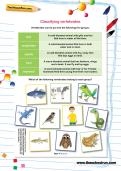

Download Fantastic Science Resources Today!
- FREE Experiments & Science Fun pack
- 100s of activities for each school year
- All the instructions, questions and information you need
Sex education in primary schools
Under the National Curriculum, the basics of sex education fall within the science curriculum. ‘The statutory content requires maintained schools to teach children about human development, including puberty, and reproduction,’ says Lucy.
In Year 2, children learn that animals, including humans, have offspring that grow into adults. They should be introduced to the concepts of reproduction and growth, but not how reproduction occurs.
In Year 5, children are taught about the life cycles of humans and animals, including reproduction. They also learn about the changes that happen in humans from birth to old age. This includes learning what happens in puberty, including periods.
Beyond this, sex education isn't compulsory in primary schools. They may, however, decide to provide additional sex education based on the needs of their pupils, and indeed, many do.
If you’re not happy with your child taking part in sex education at school, you have the right to withdraw them from any or all of it, and the school should make alternative arrangements for your child for the duration of the teaching. The exception is the content covered in the National Curriculum for science, which children at maintained schools have to be taught.
Sex and relationships education policies
Schools must have a policy on how they will deliver relationships and sex education, which must be available to parents.
Primary schools' relationships education policy should:
- Define relationships education
- Set out the subject content, how it's taught and who will be teaching it
- Describe how the subject is monitored and evaluated
- Include information about why parents are unable to withdraw their children from relationships education.
In primary schools that choose to deliver sex education, the policy should:
- Define any sex education that they choose to teach other than what is included in the science curriculum
- Set out the subject content, how it's taught and who will be teaching it
- Describe how the subject is monitored and evaluated
- Include information about how parents can withdraw their children from sex education.
The government’s guidance says that it's good practice (although not compulsory) to consult parents about what will be taught in relationships and sex education.
This should include supporting parents in talking about sex and relationships at home, and linking it with what will be taught at school.
For example, schools might invite parents in to look at the resources that will be used in class, or even provide materials to be used at home.
What does an SRE lesson look like?
The quality and quantity of SRE varies enormously in primary schools; indeed, Ofsted has recently pointed out failings across the board, such as leaving teaching about puberty too late, and not teaching the correct anatomical terms for genitalia.
‘Ideally, schools should dedicate teaching time to SRE in every school year, so that they can revisit and build on what children have learned,’ says Lucy. ‘This could begin in the lower years with learning about the differences between boys and girls and how families care for each other, and develop so that by the time children leave primary school, they’ve covered a wide range of topics.’
Techniques that schools may use to deliver SRE include:
- Games: for example, a parachute game to explore different types of families, where children run underneath if they live with two parents, one parent, have siblings, are an only child, and so on.
- Using storybooks that open up discussions about sex and relationships.
- Circle time and question box activities, where children can post anonymous questions for group discussion.
- Drama, role-play and puppets.
- Art: for example, children drawing pictures of what they think a child older than them might look like, clothed and unclothed.
- Watching videos and discussing what children have learned.
Some SRE may be taught as a whole-class exercise, but children may also be split up into boys and girls or small groups at times: for example, children might be taught about puberty in single-sex groups.
‘If the class is broken down into smaller groups, they should come back together afterwards to share what they’ve been learning,’ Lucy adds.
It’s important that teachers get training and support with the subject. ‘The teacher responsible should be competent and trained in delivering SRE so that they can manage the teaching process, set ground rules, and treat it as a proper subject, monitoring, assessing and evaluating what children learn,’ says Lucy. ‘What children really want are open conversations with reliable adults.’
Teaching diversity
There has been a lot of debate in recent years about how schools should handle relationships education. The government’s current guidance says, ‘pupils should learn the significance of marriage and stable relationships as key building blocks of community and society. Care needs to be taken to ensure that there is no stigmatisation of children based on their home circumstances.’
During the consultation period on compulsory relationships education, there was considerable unrest over what children would be taught. In particular, a significant number of parents objected to teaching children about LGBT+ relationships, with protests outside some schools.
In response, the DfE has clarified that teaching children about LGBT+ relationships will not be compulsory in primary schools. However, it urges schools to reflect the diversity of families in their school community, which may include families with LGBT+ members.
It states that children from these families, or who are beginning to understand they may be LGBT+ themselves ‘should feel that relationships education is relevant to them. Pupils should receive teaching on LGBT relationships during their school years – we expect secondary schools to include LGBT content and primary schools are enabled and encouraged to cover this.’
Legislation leaves it up to schools to make decisions about what is appropriate to teach on this subject and when, based on the age and development of their pupils. Schools will also be advised to involve the parent body in these decisions.
‘It’s important that schools show images of different types of family,’ says Lucy. ‘Children will have questions about what terms like “lesbian” and “gay” mean, and it’s appropriate to explain them, but the main thing is that children learn that relationships should be loving, equal and safe across the board.
'We also know that the majority of children, young people and parents want an education that reflects the realities of growing up in modern society and equips them to enjoy safe and respectful relationships.’
SRE for children with special educational needs
The Department for Education is clear that children with SEN - whether in mainstream or special schools - must also receive relationships education. However, how this should actually be delivered is somewhat vague, and schools have a lot of flexibility in how they plan and teach SRE to children with special needs.
The guidance says that all relationships education should be sensitive, age-appropriate and developmentally appropriate, and highlights that there may be a need to tailor the content and teaching for pupils with specific needs. It also recognises that pupils with SEN may be more vulnerable to bullying and exploitation.
The Sex Education Forum and Mencap have collaborated on a guide to SRE for disabled pupils and pupils with special educational needs. Although this is designed primarily for teachers, it's also a useful resource for parents.
The guide suggests that there are four interconnected areas of SRE learning that may be particularly important for pupils with SEN:
- Personal care and hygiene
- Relationships and sex education
- Appropriate behaviour, including addressing sexualised behaviour
- Safeguarding
The Sex Education Forum also suggests particular ways in which SRE can be adapted to children with SEN, for example:
- Involving a wider range of staff, including those specifically involved in a pupil's care (e.g. their Learning Support Assistant, or LSA).
- Revisiting topics to ensure they've been understood and taken on board.
- Using day-to-day activities to support SRE teaching, for example using queuing for lunch as an opportunity to reinforce the importance of personal boundaries.
‘People with a learning disability can and do fall in love, but may not understand what a healthy relationship is,' says Richard Lawrence, co-chair of the Relationship and Sex Steering Group at Mencap.
'It’s negative attitudes like this that mean that people with a learning disability don’t get to learn about these important things like others do. They end up finding out the hard way, and this isn’t right. They need to be given the chance to learn so they can find love or have friendships.'
The future of sex education in Welsh primary schools
Primary schools in Wales are also set to get a curriculum revamp in the near future, which includes what will be known as Relationships and Sexuality Education.
It will be one of the compulsory components of the Curriculum for Wales. Schools will have the freedom to design their own programme of teaching, but it’s thought that many will base it around UNESCO guidance, which covers:
- Relationships
- Values, rights, culture and sexuality
- Understanding gender
- Violence and staying safe
- Skills for health and wellbeing
- Human body and development
- Sexuality and sexual behaviour
- Sexual and reproductive health
The aim is for Relationships and Sexuality Education to be a progression from five to 16, so children will be taught in an age-appropriate way at each stage.
While it’s not specified if or how schools should address LGBT+ issues, the draft guidance says that Relationships and Sexuality Education must reflect diversity across relationships, sex, gender and sexuality, and represent the personal circumstances of individual pupils. There will also be a focus on respect.
Parents will continue to be able to opt their children out of sex education lessons, but not the mandatory parts of SRE or the related curriculum content for science.
The new Curriculum for Wales launches in 2022, but it's expected that the SRE changes will come into effect before this.
Sex and relationships education: primary parents' questions answered
For more detail about exactly what children will be introduced to in SRE, read our guide, parents' questions about sex and relationships education in schools answered.
For information about SRE for your primary school child, visit the Sex Education Forum's resources page.

Give your child a headstart
- FREE articles & expert information
- FREE resources & activities
- FREE homework help

